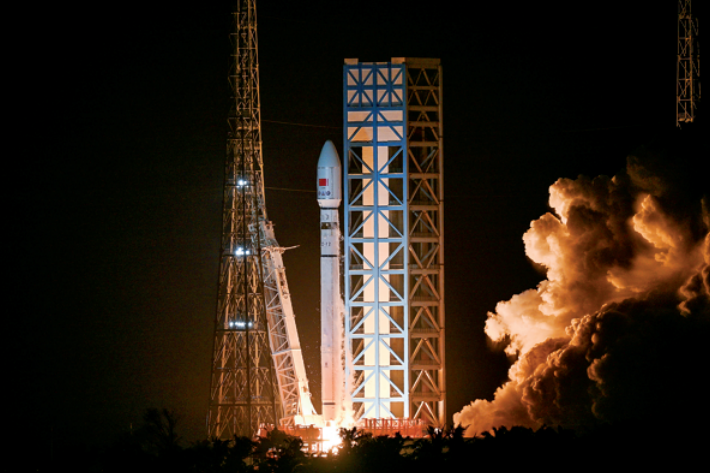Insights of Kissinger, Munger should serve as guiding light
By Wilson Lee Flores | China Daily Global | Updated: 2023-12-18 09:18

Can the West learn from the perspectives of Henry Kissinger and Charlie Munger, two intellectual giants who recently passed away?
In particular, their dispassionate and erudite admiration for China's peaceful rise offers invaluable lessons and a blueprint for cooperation that can ensure long-term global stability.
Munger, a legendary investor and longtime right-hand man of Warren Buffett, died on Nov 28 at age 99. He was vice-chairman of investment powerhouse Berkshire Hathaway.
Kissinger, the former United States secretary of state who played a pivotal role in normalizing US-China relations, passed away on Nov 29 at age 100.
Harvard University summa cum laude graduate and former professor Kissinger was a luminary in US foreign policy, while Harvard Law School magna cum laude graduate Munger was a billionaire investor. Both epitomized the apex of Western intellectual discernment.
According to Business Insider, "Munger was respected for his immense wealth and his recognition of China's achievements.…Kissinger represented a bygone era when the US was more invested in benefiting from China's growth than curbing its potential dominance."
Henson Tiu Laurel, founder of the Philippines' Diliman Book Club and a former University of the Philippines educator, said: "Two of the brightest stars in the American intellectual firmament, centenarian Henry Kissinger and almost-centenarian Charlie Munger, who died on almost the same day, were both ardent admirers of China. They had the vision with the breadth and depth to look on China from a global-historical perspective, to view China as what (British author) Martin Jacques had called a civilization-state. Kissinger's views are laid out in his book On China, while Munger up to the very end kept on investing in many businesses in China. They also had a massive following in China."
Kissinger's perspective, as eloquently laid out in On China, navigates the intricate landscape of historical forces and global power dynamics. Emphasizing dialogue and cooperation, Kissinger advocated for a strategic partnership between the West and China, steering away from confrontational posturing.
His recognition of China as a unique civilization-state underscores the necessity for geopolitical leaders to adopt a global-historical perspective. The lessons are clear — engage in thoughtful diplomacy, respect cultural intricacies and cultivate collaboration for enduring global stability and human progress.
Kissinger's wisdom offers a blueprint for transcending ideological divides, fostering a world where shared interests prevail over adversarial tensions.
A lasting legacy of Kissinger was his agreeing to language that eventually became part of the 1972 Shanghai Communique and the one-China policy as a foundation of US-China relations: "The United States acknowledges that all Chinese on either side of the Taiwan Strait maintain there is but one China and Taiwan is part of China."
Munger, meanwhile, provided a unique view of China's phenomenal economic trajectory. His investments in Chinese businesses attest to his deep appreciation for the country's socioeconomic and technological progress. His admiration extended beyond economic indicators to the great discipline of the Chinese people, their remarkable work ethic, and a commitment to long-term strategic thinking.
Munger's perspective underscores the importance of adaptability and foresight in the business landscape. For leaders navigating economic complexities, Munger's lessons in resilience, discipline and farsightedness are ideal guiding principles. China's peaceful economic ascent, marked by strategic pivots and long-term vision, aligns with Munger's principles.
The insights of Kissinger and Munger call for nuanced narratives. Recent years have witnessed an unfortunate surge in unfair and negative reports on China, fueled in part by anti-Asian sentiment during the COVID-19 pandemic and adversarial geopolitical posturing.
In contrast to past Western powers' rises accompanied by colonial military conquests and gunboat diplomacy, the peaceful ascent of China is rooted in the Chinese people's seemingly boundless capacity for hard work and creativity, guided by a pragmatic, science-driven government.
Western media should strive for a more comprehensive and less biased portrayal of China's multifaceted rise, recognizing the wisdom inherent in this epochal, peaceful ascent.
Political leaders can draw inspiration from Kissinger to transcend ideological divides through dialogue and strategic partnerships, thus fostering a stable global order. Simultaneously, Munger's lessons for business leaders include the importance of cultivating adaptability, discipline and farsighted strategies in a dynamic economic landscape.
Let us not merely admire the wisdom of Kissinger and Munger, but internalize their lessons as well. The convergence of their diplomatic finesse and business acumen serves as a guiding light toward a better global future, in which collaboration triumphs, economic strategies are disciplined and the collective intellect propels humanity toward understanding and prosperity.
The author is a moderator of the Pandesal Forum and columnist at The Philippine Star newspaper.
























